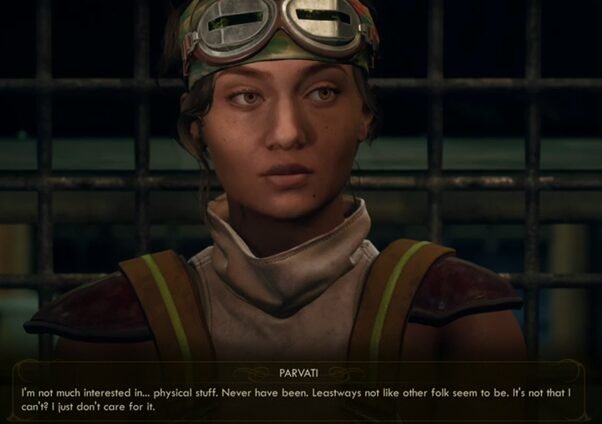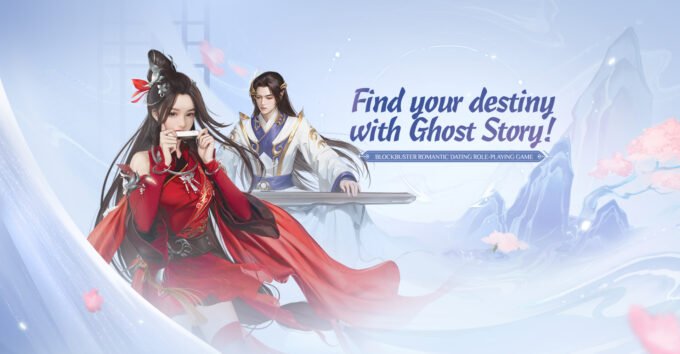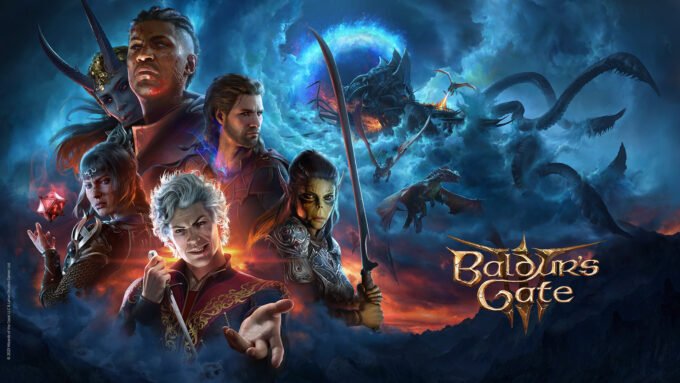Parvati Holcomb is an NPC ally character in The Outer Worlds. She is a sweet person, kind and loyal. And a good friend to your character, assuming how you act with her of course (why would you be mean to her? Seriously, why? Do you have no heart?). However, adorable character aside, one massive thing makes her special: her use of Asexual representation within media – especially within the landscape of video games.
What is Asexuality?
Asexuality is part of what the “A” in “LGBTQIA+” stands for. Some take it to mean “Ally”, and if you use it for that – I can understand and will not take it from you; however, it does have other meanings. Mainly ones to do with “Asexual” “Aromantic” and “Agender” queer identities. Asexual means to have little to no sexual attraction to people. However, it is not to be confused with Aromanticism – however, some people, like myself, go by both – as some people can conflate the two. Aromanticism means not holding any (or little) romantic attraction towards people. It is important to note that people can be either or, or both. And, also, that labels and identities change.
The Quest

Parvati’s journey resonates deeply with me. As an asexual person myself, I’ve often felt a sense of isolation and misunderstanding. Her fears and insecurities mirror my own, making her story all the more relatable.
The Outer Worlds offers a unique perspective on love and acceptance. Parvati’s quest, “Drinking Sapphire Wine,” is a poignant exploration of these themes. Her growing connection with Junlei Tennyson is a heartwarming reminder that love can take many forms.
As players guide Parvati through her journey, they’ll experience the same mix of hope and anxiety that she feels. Her fears of rejection and her desire to be understood are universal themes that many can relate to. The game’s sensitive portrayal of these issues creates a powerful and empathetic narrative experience
Throughout the quest, players have the opportunity to directly impact Parvati’s story. From helping her prepare for her date to offering words of encouragement, their choices can shape the outcome of her journey

Ultimately, Parvati’s story is a triumph of acceptance. Her relationship with Junlei proves that love can exist in many forms and that understanding and support are essential for building meaningful connections.
The Impact
The Outer Worlds’ portrayal of Parvati’s journey was incredibly validating for me as an asexual and aromantic individual. Seeing a character openly discuss their identity without judgment or ridicule was a refreshing change. The game’s dedicated questline exploring Parvati’s experiences not only celebrates her identity but also educates players about asexual and aromantic spectrums.
Personally, witnessing a character like Parvati, someone who shares my passion and drive, be treated with respect and understanding was incredibly empowering. The game allows players to choose their own pace in exploring Parvati’s story, ensuring that everyone feels comfortable and respected.
What I appreciate most is that the game doesn’t force the player to fully understand Parvati’s identity. Instead, it encourages acceptance and empathy. While the player’s character may not have a complete grasp of asexual and aromantic experiences, they are never pressured to judge or condemn Parvati for who she is.
The representation of asexual and aromantic identities in The Outer Worlds is a significant step forward. It’s a comforting reminder that these identities are valid and worthy of celebration. Parvati’s story highlights the importance of inclusivity and understanding in storytelling, and it’s a powerful message for players of all backgrounds.
Conclusion
The Outer Worlds is a zany, entertaining game with a fun – if exaggerated – world. However, it still has heart to it; with characters you can understand and empathise with, and individual quests for them to help you further build a bond and understanding of them. But, there is one I remember clearly, and it was this small quest line with Parvati, a character whose rambling, passion for engineering, and sheer kindness already made me enjoy her presence and her character; but this made me feel more connected to her. To see someone I cared about have something like identity in common drew me in more. And to see it be handled with sensitivity – somehow both in the light, but also just treated as a normal thing as well. It meant everything. It still does.
Follow Blooing on Facebook, YouTube, and TikTok for more Indie Game news and reviews.

















Leave a comment